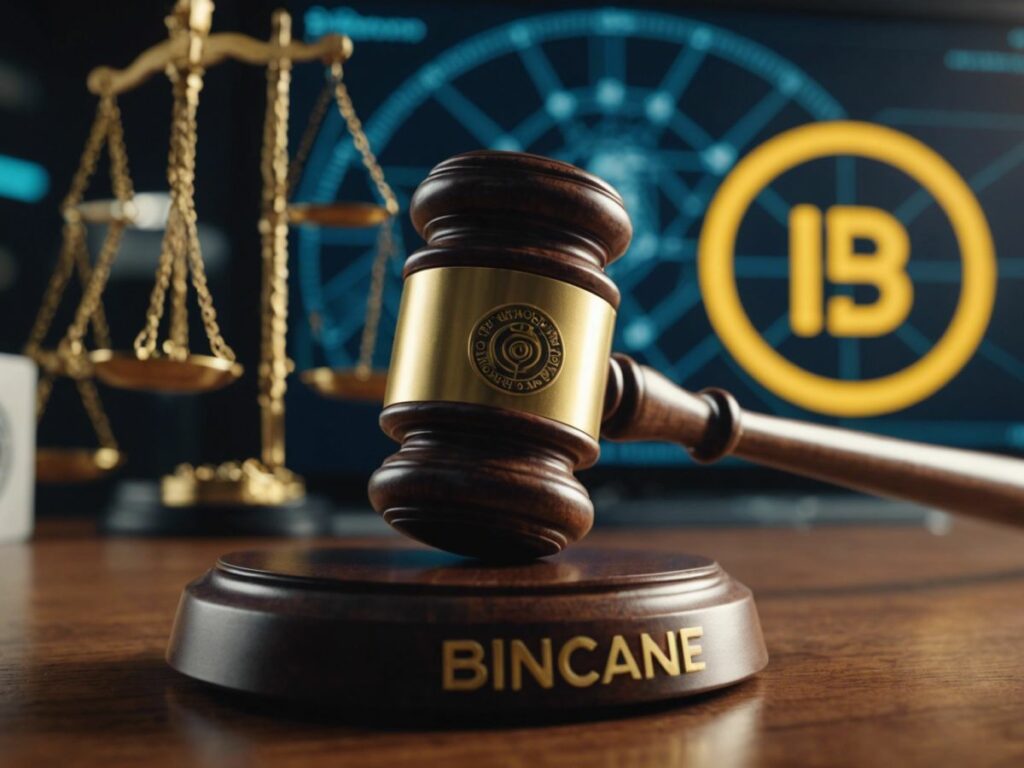In 2023, the U.S. Securities and Exchange Commission (SEC) initiated lawsuits against the world’s three largest crypto exchanges – Binance, Coinbase, and Kraken – marking the beginning of a stringent regulatory era for the previously unrestrained crypto industry.
Key Takeaways
- The SEC has filed lawsuits against Binance, Coinbase, and Kraken.
- Allegations include operating unregistered exchanges and commingling customer funds.
- The lawsuits have significant implications for the future of the crypto industry.
SEC vs. Binance: Accusations and Developments
On June 5, 2023, the SEC filed a lawsuit against Binance, accusing the exchange of several violations:
- Running an unregistered exchange and allowing U.S. investors to trade cryptocurrencies.
- Selling Binance-owned cryptos BNB and BUSD stablecoin.
- Offering staking and profit-generating programs like BNB Vault and Simple Earn.
- Misrepresenting investor protection controls on the Binance.US platform.
- Not allowing Binance.US to operate independently.
- Concealing efforts to ensure high-value U.S. investors continued trading on Binance.com.
- Using customer crypto and fiat assets.
- Engaging in wash trading to inflate trading volume on Binance.US.
The SEC’s allegations against Binance are severe, with accusations of commingling customer funds drawing parallels to the now-defunct FTX exchange. As of late November 2023, the lawsuit remains unresolved, with Binance filing a motion to dismiss the case. The exchange has agreed to pay a $4.3 billion fine to settle charges from the Department of Justice (DoJ), Commodity Futures Trading Commission (CFTC), and Financial Crimes Enforcement Network (FinCEN). This settlement led to the resignation of Binance CEO Changpeng Zhao, with Richard Teng stepping in as the new CEO.
SEC vs. Kraken: Similar Allegations
On November 20, 2023, the SEC filed a complaint against Kraken, the world’s third-largest crypto exchange by trade volume. The charges mirror those against Binance and Coinbase, accusing Kraken of operating as an unregistered securities exchange, broker, dealer, and clearing agency. The SEC also alleged that Kraken commingled customer funds for operating expenses, despite auditor warnings. Kraken has denied the charges and intends to defend itself in court.
SEC vs. Coinbase: Compliance Issues
A day after the Binance lawsuit, the SEC charged Coinbase with operating as an unregistered securities exchange, broker, and clearing agency. The SEC criticized Coinbase’s staking-as-a-service program and its marketing campaigns that portrayed the exchange as compliant. Coinbase has responded by attempting to register parts of its business with the SEC, but claims the regulator has been uncooperative. The lawsuit is expected to extend into 2024.
Market Reactions and Future Implications
Despite the lawsuits, the cryptocurrency market has shown resilience. Bitcoin (BTC) and Ether (ETH) quickly rebounded from initial sell-offs. However, cryptocurrencies identified as securities by the SEC, such as BNB, ADA, SOL, MATIC, and ATOM, faced selling pressure. Data firm Nansen reported significant withdrawals from Binance following the SEC lawsuit and subsequent fine.
The Road Ahead for the Crypto Industry
The crypto industry is bracing for increased regulation. Experts suggest that U.S. centralized exchanges may limit their offerings to Bitcoin and Ether, while international exchanges could list tokens not available in the U.S. There is also a push within the industry for cryptocurrencies to be regulated by the CFTC rather than the SEC, to avoid stringent securities regulations. The outcome of these lawsuits will likely set new precedents and shape future legislation, with the industry hoping for a fair regulatory environment in the U.S.
Understanding the SEC’s Role
The SEC, established in 1934 after the stock market crash of 1929, aims to protect investors by ensuring companies provide truthful information and regulate brokers, dealers, and exchanges. The regulator’s recent actions against Binance, Coinbase, and Kraken reflect its intent to apply these principles to the crypto industry.
Conclusion: Inevitable Regulations
Cryptocurrency regulation appears inevitable, but there is optimism that the U.S. will offer a fair regulatory environment, unlike China’s blanket ban on crypto activities. Clearer regulations could lead to stronger, safer, and more acceptable crypto exchanges in the future.
Sources
- SEC vs Binance, Coinbase, Kraken Lawsuits Usher Tough New Era, Techopedia.
- Binance, Coinbase head to court; the SEC labels 67 crypto-securities, Cointelegraph.
- Full List of Cryptos Named Securities in SEC Lawsuits, BeInCrypto.
- The SEC Comes for Crypto – Bloomberg, Bloomberg.com.
